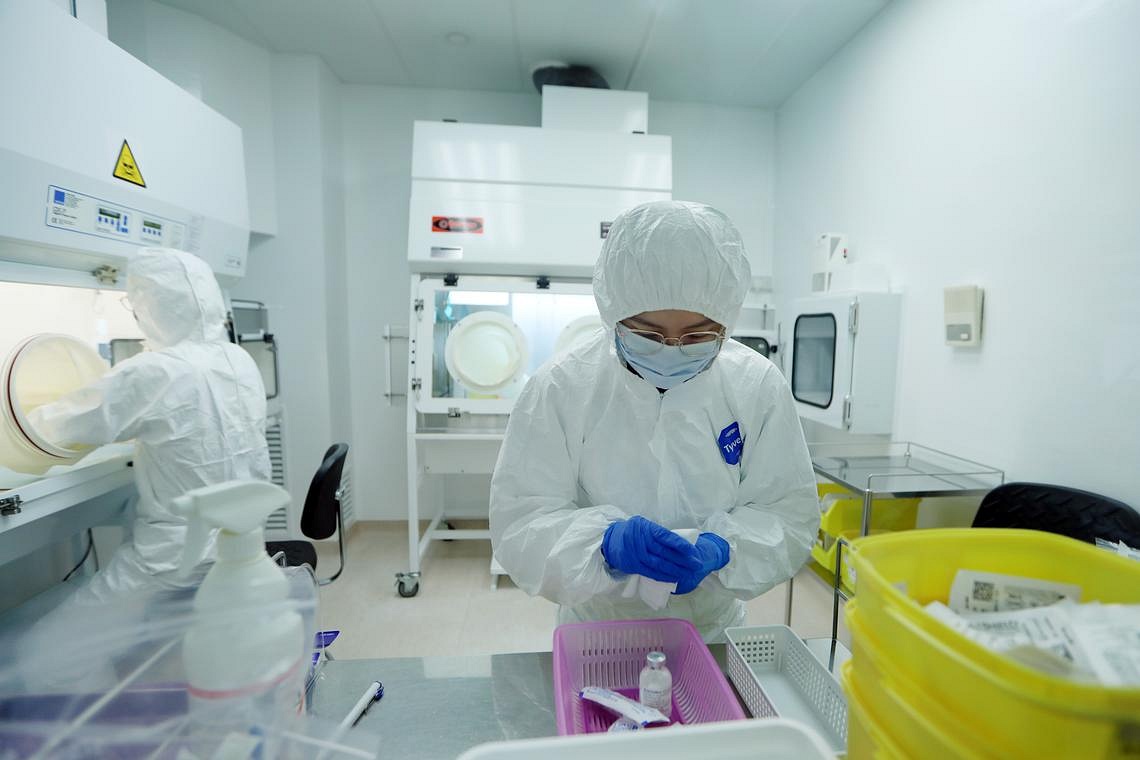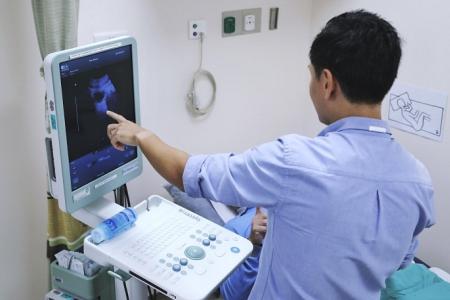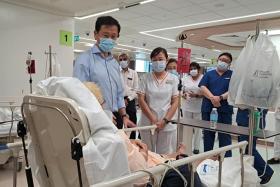Combo of ‘off-label’ chemo drugs successfully fights bladder cancer
A combination of two existing chemotherapy drugs has been used to fight bladder cancer successfully for the first time in Singapore.
This new union of the two “off-label” drugs – gemcitabine and docetaxel – was offered from October 2023 specifically to patients who were unresponsive to treatment and at higher risk for surgery.
It was used on five bladder cancer patients, and the outcomes for four of them have been more than favourable. They are now either disease-free or in remission.
The fifth patient is currently only six months into the treatment.
“Off-label treatment” refers to the prescription of pharmaceutical drugs outside their intended use.
Gemcitabine disrupts DNA formation and slows or stops the growth of cancer cells. It is used to treat testicular, breast, ovarian, non-small cell lung and pancreatic cancers.
Docetaxel is used to treat advanced or metastatic breast, head and neck, stomach, prostate and non-small cell lung cancers.
Dr Tan Yu Guang, an associate consultant at Singapore General Hospital’s (SGH) department of urology, said the drugs are delivered to the bladder via the urinary tract, and the treatment for the induction period is every week for six weeks before the patient is treated once a month for the rest of the period.
Each session usually takes three hours, and the full treatment runs for 24 months.
Global cancer statistics show that Singapore has one of the highest prevalence of bladder cancer in South-east Asia, and its five-year prevalence rate in the World Health Organisation’s 2022 report was 28.8 per 100,000 people.
The most common immunotherapy for treating early-stage bladder cancer is the Bacillus Calmette-Guerin (BCG) vaccine treatment. If that fails, the only other alternative is surgery to remove the entire bladder, which carries a 3 per cent risk of death after the operation and up to 50 per cent risk of complications.
Dr Tan said removing the whole bladder is major surgery that entails the complete removal of the bladder and the surrounding lymph nodes, and the reconstruction of the urinary tract to drain urine externally.
He added that the quality of life after such surgery is also poor because of high complication rates and prolonged hospital stays.
“The patients become malnourished and physical health deteriorates, with a significant number of patients requiring physical walking aids and a permanent external stoma,” he said.
The other option is new gene therapies and systemic immunotherapies, but these are costly and are not currently available in Singapore.
The international urological community has therefore identified “an urgent unmet need in BCG-failure patients, especially those who cannot undergo radical surgery”.
So the new option of the combined chemotherapy drugs offered by SGH and intended for patients who are unresponsive to treatment and at higher risk for surgery seemed the most promising.

The High-Risk Bladder Cancer Clinic, established at SGH in October 2023 to standardise care for the 40 to 50 new high-risk bladder cancer patients each year, aims to advance the understanding of the disease and find novel treatments to improve patient outcomes while keeping costs low.
Dr Tan said that most importantly, the side effects of the combination drugs are even milder than the previous BCG instillations.
Retiree Tony Wong (not his real name) was the first of the five patients who underwent the new treatment regimen.
The 87-year-old, who used to work in the finance industry, was diagnosed with bladder cancer in July 2022 after he found blood in his urine.
“I was in despair... and I agreed to undergo BCG treatment first. I suffered bad side effects such as insomnia, loss of appetite, fever and headaches, and I started losing hope until Dr Tan asked if I was willing to undergo a new treatment,” he said.
Mr Wong became cancer-free 14 months after he started the treatment in October 2023. However, he will have to complete the full course of the treatment to ensure the cancer is really gone.
“The good thing is that there are hardly any side effects,” he said.
The now hopeful Mr Wong said he is looking forward to November to celebrate his 88th birthday and his golden wedding anniversary with his wife in a big way.
Get The New Paper on your phone with the free TNP app. Download from the Apple App Store or Google Play Store now


